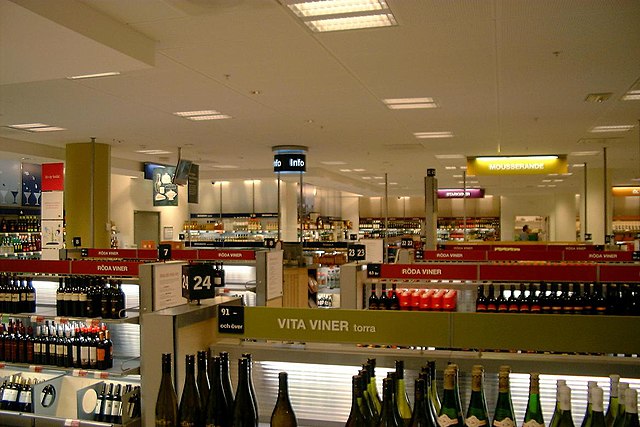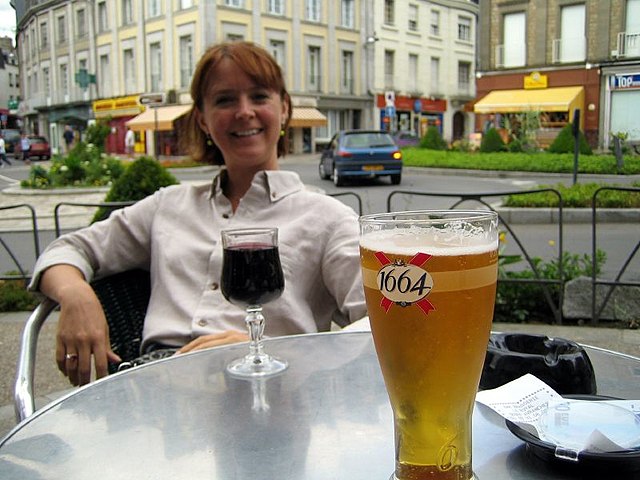An alcohol monopoly is a government monopoly on manufacturing and/or retailing of some or all alcoholic beverages, such as beer, wine and spirits. It can be used as an alternative for total prohibition of alcohol. They exist in all Nordic countries except Denmark proper, and in all provinces and territories in Canada except Alberta. In the United States, there are some alcoholic beverage control states, where alcohol wholesale is controlled by a state government operation and retail sales are offered by either state or private retailers.
Inside of a branch of the Swedish alcohol monopoly, Systembolaget, in Södertälje
Inside the Norwegian Vinmonopolet Briskeby outlet
A TTL convenience store in Keelung, Taiwan
Inside of a branch of the Qatari alcohol monopoly, Qatar Distribution Company (QDC), in Doha
An alcoholic beverage is a drink that contains ethanol, a type of alcohol and is produced by fermentation of grains, fruits, or other sources of sugar. The consumption of alcoholic drinks, often referred to as "drinking", plays an important social role in many cultures. Alcoholic drinks are typically divided into three classes—beers, wines, and spirits—and typically their alcohol content is between 3% and 50%.
A selection of alcoholic drinks (from left to right): red wine, malt whisky, lager, sparkling wine, lager, cherry liqueur and red wine
Wine (left) and beer (right) are served in different glasses.
Glasses of red and white wine
Rum display in liquor store








